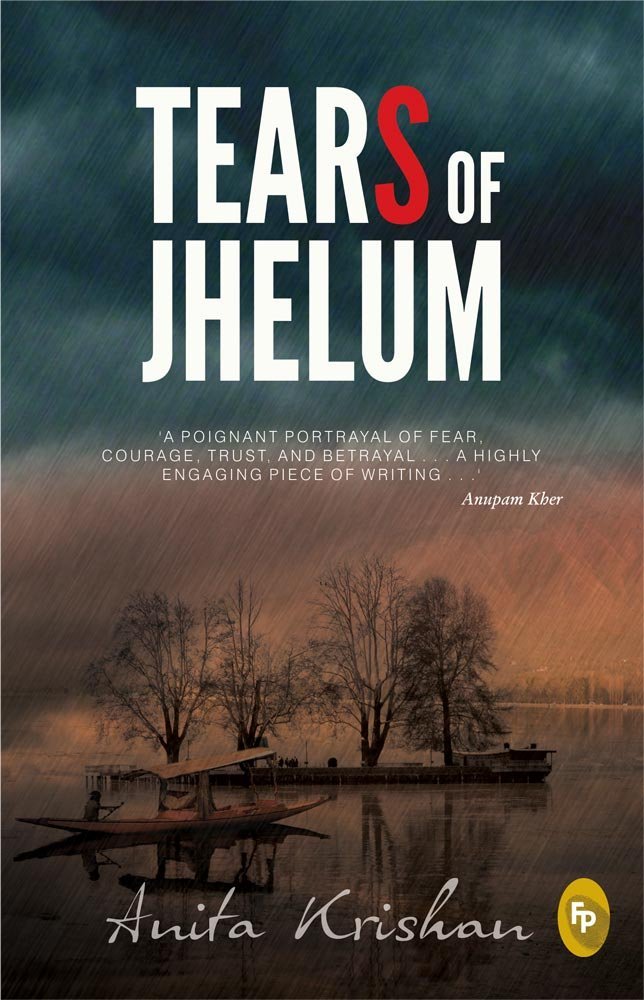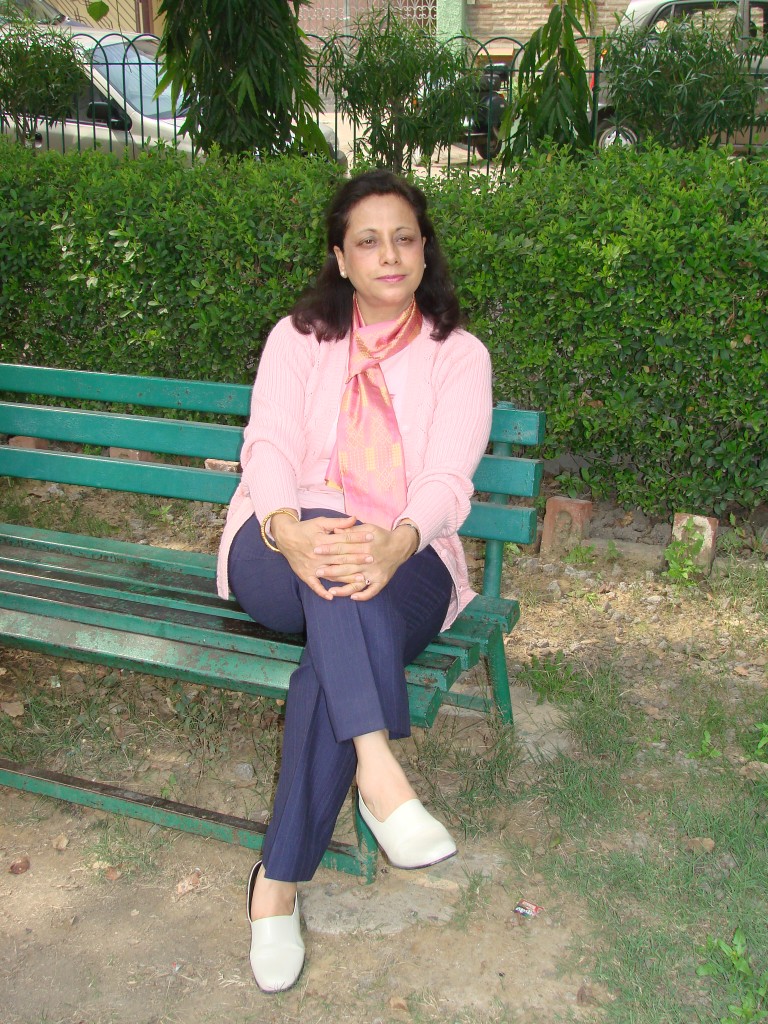Payal Mohta reviews Anita Krishan’s book ‘Tears of Jhelum’ and has a chat with the author about her work
Tears of Jhelum by Anita Krishan follows the story of Wali, a rich orchardist living in the Kashmir valley. His life which is unscathed by the terrorism unleashed around him, is uprooted overnight by a ghost from the past, reminding him of the diabolic forces that plague his homeland.
The narrative, an interesting parallel by both the writer and the protagonist, is jarring when it shifts from present to past events. The pages of the book, filled with family anecdotes, though entertaining may get tiresome after a point. The gripping suspense throughout the book culminates with a typical Bollywood masala movie style-escape.
The characters like virtuous daughter Meher, moralistic grandfather Abba Jaan and all evil terrorist Shakeel, though appealing are one-dimensional. The author also seems to have given interestingly intricate backstories to characters whose roles in the plot are either minimal or somewhat irrelevant.
The language, a cocktail of odd metaphors and dull descriptions of nature, does little for the staggering pace of the book.
Tears of Jhelum lightly touches upon social issues like communalism, male chauvinism and democratic oppression. The treatment of terrorism in the book does not unravel its multi-faceted complexities but manages to sensitise the reader towards the issue.
The book is unable to give a strong picture of the Kashmiri people, their grief, their anger and their remarkable strength as they continue to resist nearly two hundred years of imperialism. Nevertheless Tears of Jhelum is written with a sincere intent to bring to light the Kashmiri tragedy.
QUICK FIRE INTERVIEW WITH ANITA KRISHAN
The situation in Kashmir is a sensitive political issue. In this respect did you have any apprehensions when writing Tears of Jhelum?
I knew I was writing on a very sensitive subject, yet I had this powerful urge to bring forth inadequately touched issues. Some books have dealt with exodus of Pandits from Kashmir starting 1989, while other talked about suppression of Kashmiri Muslims by the Army. But the fact is, common man has been pulverised and continues to be. I wanted to give them voice irrespective of their religion.
How was the transition from your previous work of pure fiction to writing political fiction in Tears of Jhelum? Did you face any difficulty?
Not at all. Once the idea to write the book emerged strongly, the rest came naturally.
What kind of research did you do when writing Tears of Jhelum?
I had followed the turmoil in Kashmir very closely ever since it began in the last decade of the previous century. I read a lot of articles on various Kashmir issues on the net…read translated version of the poetry by Kashmiri poets specifying their tolerant character…Kashmiriat. I closely followed the articles and books portraying the sufferings of the common man at the hands of the terrorists and the excesses committed by the Army. I also read a few general books written on Kashmir to catch up with the history and the character of the region.
Like your protagonist Wali the lives of several Kashmiris have been uprooted overnight. Did you speak to any such victims from Kashmir? If yes, how did that influence your writing?
I visited a few Kashmiri migrant camps in Delhi in 1992-93 and was appalled at the condition of people who had become homeless paupers overnight. Some told me that they were well off land owners back in Kashmir, but while fleeing from the valley, they couldn’t bring along even their personal belongings. That was one side of the story. My visit to Kashmir in June 2004 brought forth the other side where Kashmiri Muslims spoke about their sufferings. I realised they needed a voice…a voice that would be unbiased.
Guilt is a vital part of your characters – Wali, Nusrat and once even Sakina is “haunted by guilt”. Any specific reason for choosing this emotion?
I had judged during my visit to the valley that the guilt of what happened with the Kashmiri Pandits in Kashmir is sitting heavily on the minds of many Muslim moderates. Moreover, the mistakes committed naively do come back as guilt someday when one attains wisdom of age or jolted out of slumber like in Nusrat’s case. That is human nature. Adversities bring forth the positive side of human personality…a time when the real strength of character is revealed. I believe, only mature and strong minds can realize one’s own shortcomings and that was the character trait I wanted to assign to Wali.
The book has two parallel narratives, one by the writer and the other by the protagonist. Was this a deliberate choice?
Many a time such a choice of narrative comes during the course of writing without any pre-planning.
My endeavour was to strengthen the impact of the profound emotions that my protagonist experienced by giving him direct voice. At the same time excess of it would have worked negatively from the readers’ point of view.
Like the characters in the book have you ever been witness to communal violence or its impact?
I lived in Chandigarh during the Punjab militancy crisis of the nineteen eighties. Going out late in the evening had become a total taboo. Once I had driven by an area in the outskirts of Chandigarh, where a day later ten Hindus were taken off a bus and shot. “It could have been me,” I had thought with anguish.
On October 29, 2005, I was not even ten metres away from the site of the bomb blast in a jam packed Sarojini Nagar market in South Delhi. I survived because of the massive crowd of Diwali and Eid shoppers in front of me. There were series of blasts in Delhi that evening and forty people had died in Sarojini Nagar alone.
I had grown up listening to the stories of the inhuman sufferings and merciless butchering of the partition time.
Like the rest of the sane world, the 9/11 attacks on the World trade Towers and 26/11 attack on Mumbai had left me distressed and fuming at the madness.
All these incidents brought a common question in my mind….WHY?
How do you deal with writer’s block?
Fortunately till now, I have seldom encountered one. Once I begin to write, the story flows like an unobstructed stream. Of course, ideas keep stirring at different times and keep getting fitted into the narrative.
What or who inspires your writing?
All the stories, novels, books I have read since a ten-year-old have combined to fill me with the urge to write my own stories.
Tears of Jhelum ends with the line “The story continues…” Have you started working on the sequel?
Yes, I am presently working on the sequel of Tears of Jhelum.

































